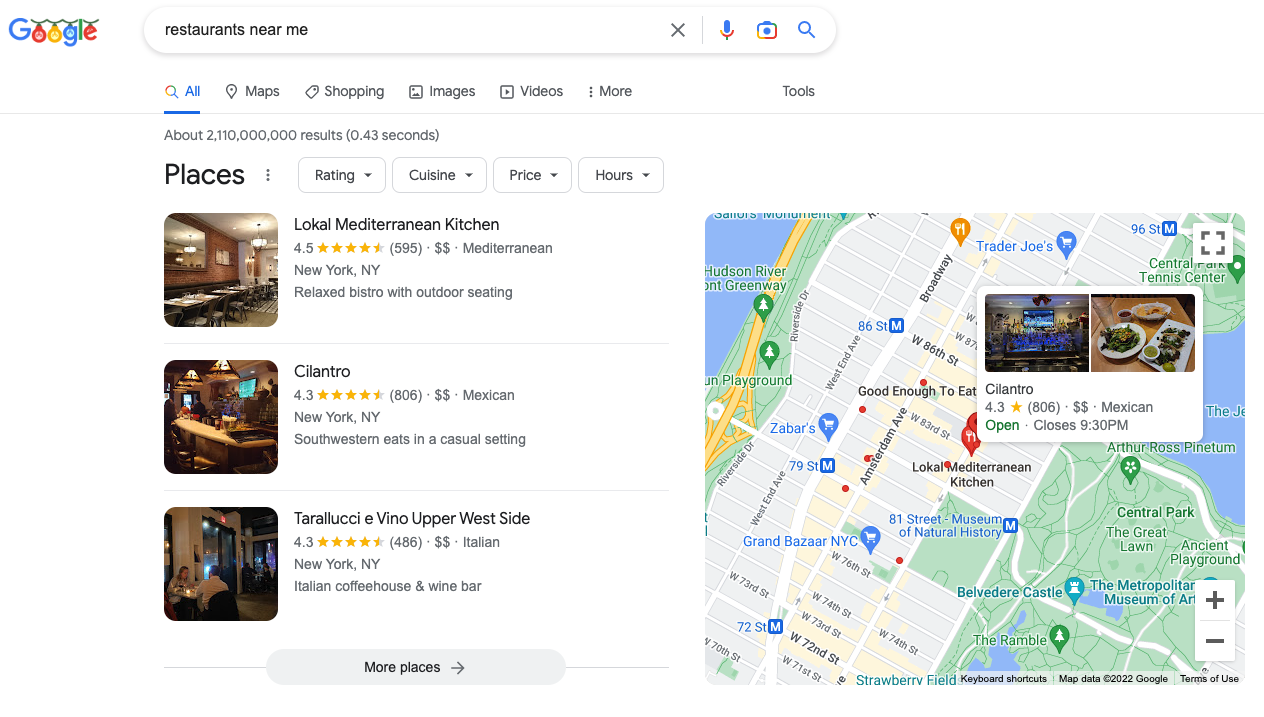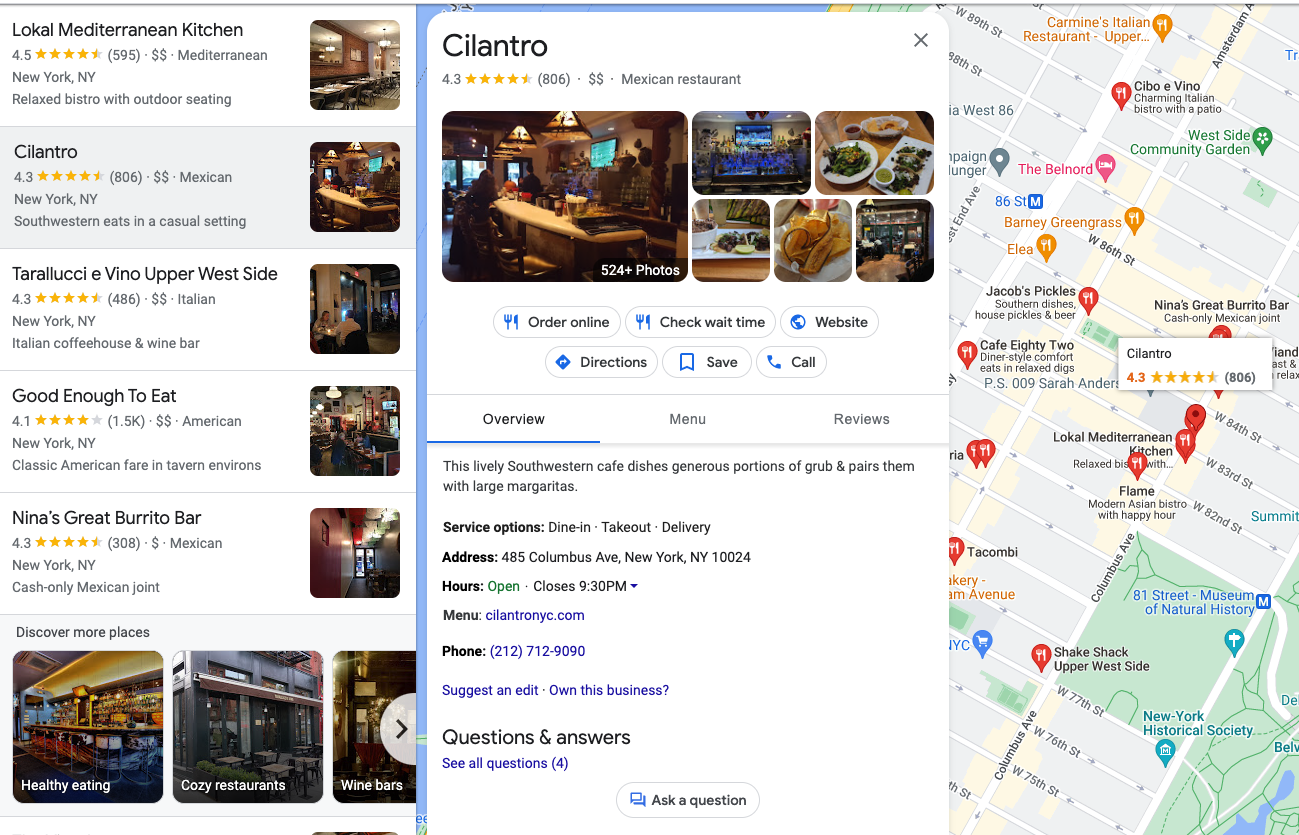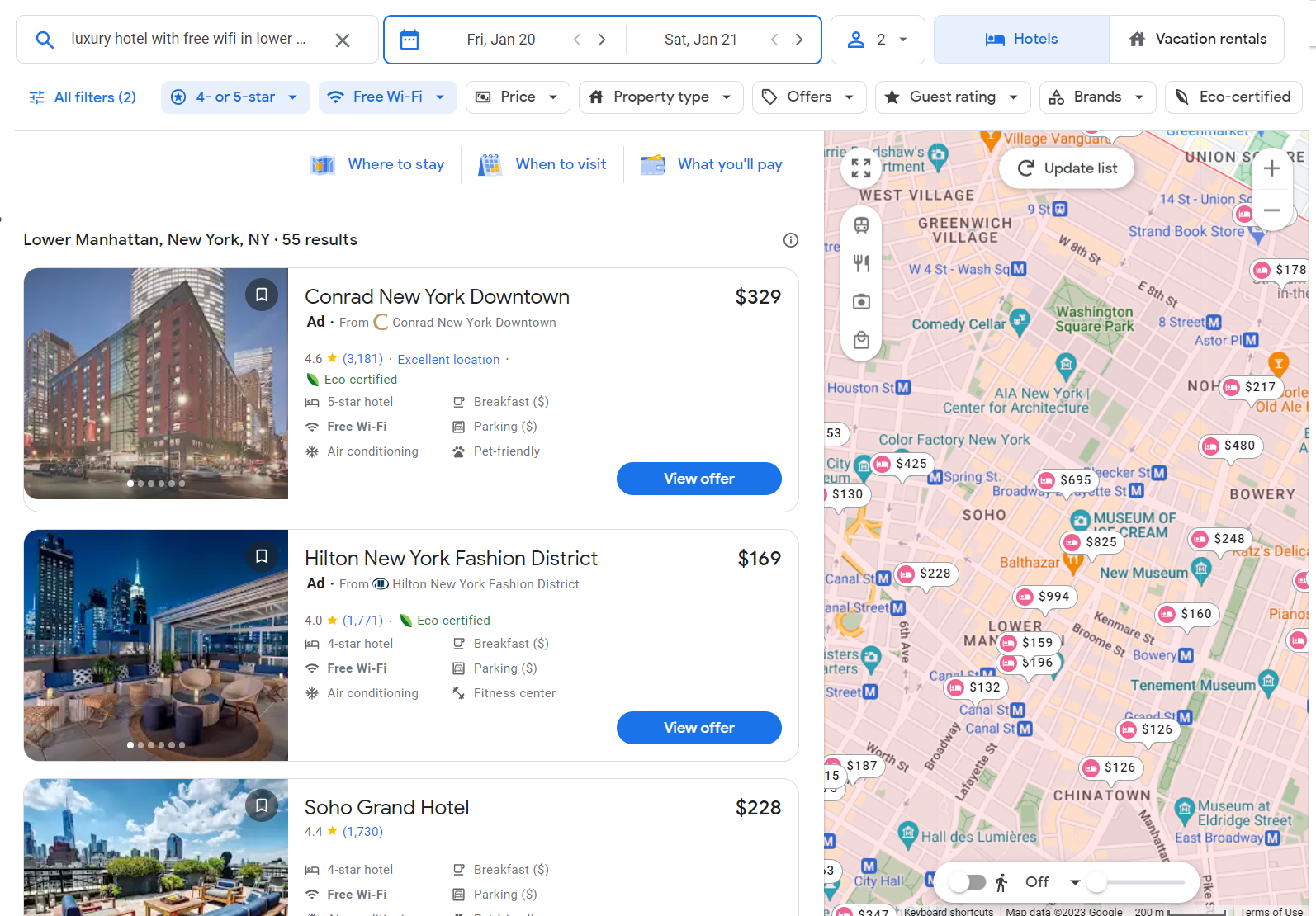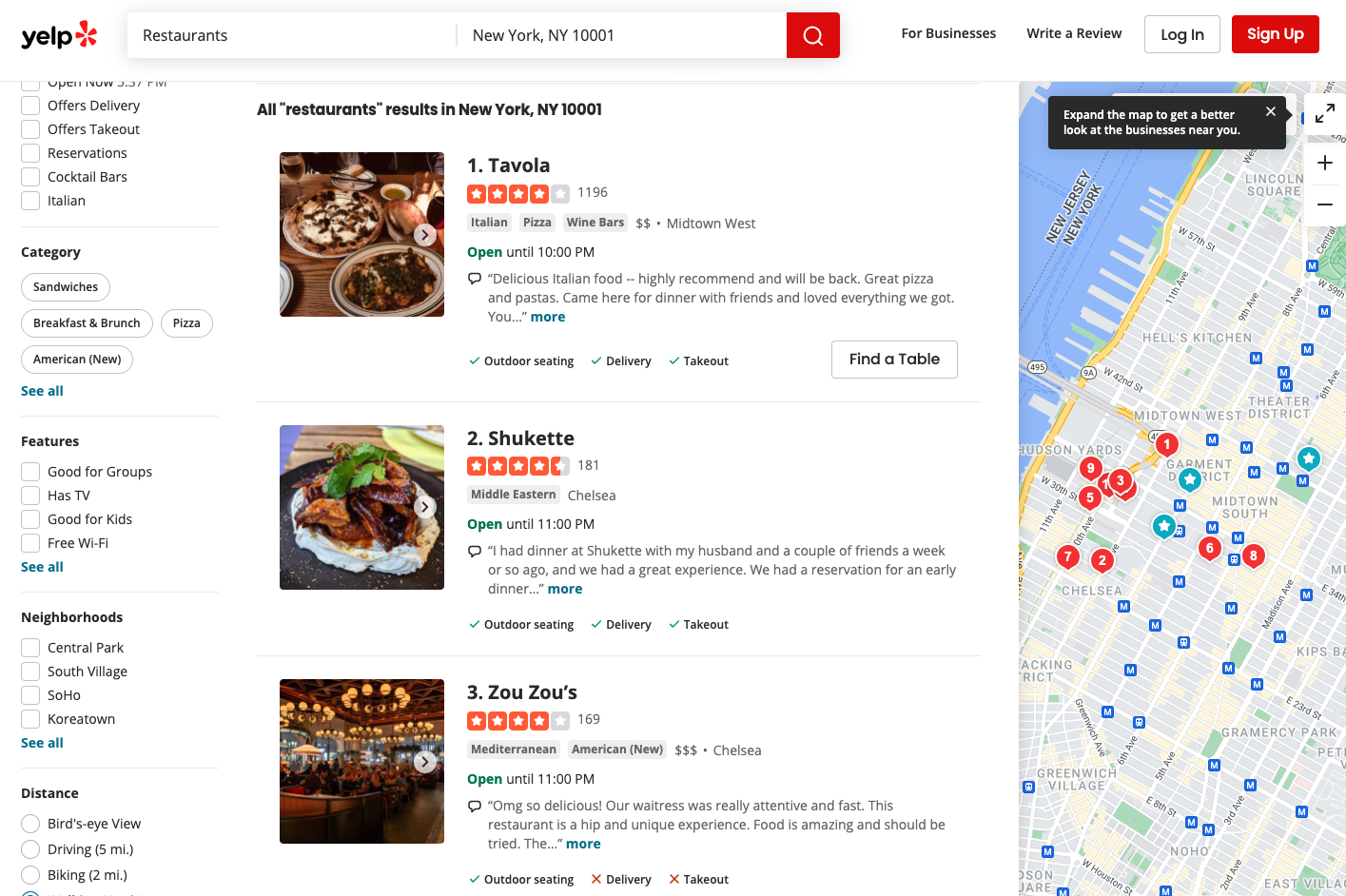What are Listings and Publishers? | Yext Hitchhikers Platform
What You’ll Learn
In this section, you will learn:
- What listings are and what they do
- What publishers are and how they interact with listings
- Why managing listings is important
What are Listings?
Listings publicly display information about a business’s address, hours, services, and amenities — on search engine results, review sites, directories, smart voice assistants, or anywhere else on the internet that users might be searching.
You already interact with listings almost every day. Let’s say you’re making dinner plans. You might head to Google and search “restaurants near me.” Each result you see on the map is a listing.

Then, you’ll probably click through the listings on the map to see more information, pulling up a card full of structured data. The structure of this data allows the listing information to be displayed in a standardized way across different websites and devices.

Structured data, searches, and listings
Well-structured data also makes it possible for users to get answers to their searches. A search query is broken down into separate parts that can then be answered by different pieces of the structured data.
Let’s do a more specific search: “luxury hotel with free wi-fi in lower Manhattan available tonight.”

Each part of the search query can be seen in the structured data points on the listings that come up in the search results:
- luxury describes the level of service
- hotel describes the category of establishment
- free wi-fi describes an amenity the hotel has available
- in Lower Manhattan describes where the hotel should be
- available tonight checks current inventory for this evening

Good listings have detailed content that drives engagement both online and (eventually) in person. The easier it is to find information online for a certain business, the more likely consumers are to interact.
What are Publishers?
Publishers are apps, websites, and other services that customers use to access listings.
You probably use lots of different types of publishers already. Continuing with the first example above about making dinner plans: Google Maps and Yelp are both popular publishers.

Different types of publishers include:
- Search engines (Google, Bing)
- Online directories (Yelp, TripAdvisor)
- Voice assistants (Alexa, Siri, Google Home)
- Maps or navigation services (Google Maps, Apple Maps, Waze, Uber)
- Social media (Facebook, Instagram, TikTok)
- Directories for a specific industry or category (e.g., OpenTable for restaurants, Zocdoc for healthcare providers)
No matter the type, all publishers have a few things in common:
- They have the ability for users to search, and a search engine results page (SERP)
- They have an algorithm that determines the search results they show
- They combine data about businesses from a variety of sources
- They prefer listings data that comes straight from the business (or person) who represents that listing
Data that comes straight from the business representing a listing is called first-party data, while data feeding into publishers from other sources is known as third-party data.
Long-tail publishers
The most popular publishers (like Google and Apple) get the highest volume of traffic in search results. There are many other publishers that are less common, usually because they serve a certain niche (like a specific geographic region, user base, or industry) or they may have become less popular over time (remember Foursquare?).
These are called long-tail publishers.
![]()
Long-tail publishers may get less traffic, but they’re still an important part of a listings strategy. Google and other search engines pay attention to the consistency of data when determining how businesses show up in search. Also, some users may prefer smaller or more specialized publishers, especially if they are in a very specific industry.
This means that if you maintain accurate, up-to-date listings on a couple major publishers, but aren’t paying attention to how your listings appear on smaller publishers, you may be affected by inconsistent data on those smaller publishers that end up hurting your results on the bigger ones, like Google and Apple.
Keep Learning
If you’re interested in learning more about SEO, check out the Intro to SEO module.
Which of the following is true about listings? (Select all that apply)
What are publishers?
True or false: Long-tail publishers aren’t relevant to an effective listings strategy.
Climbing that leaderboard! 📈

